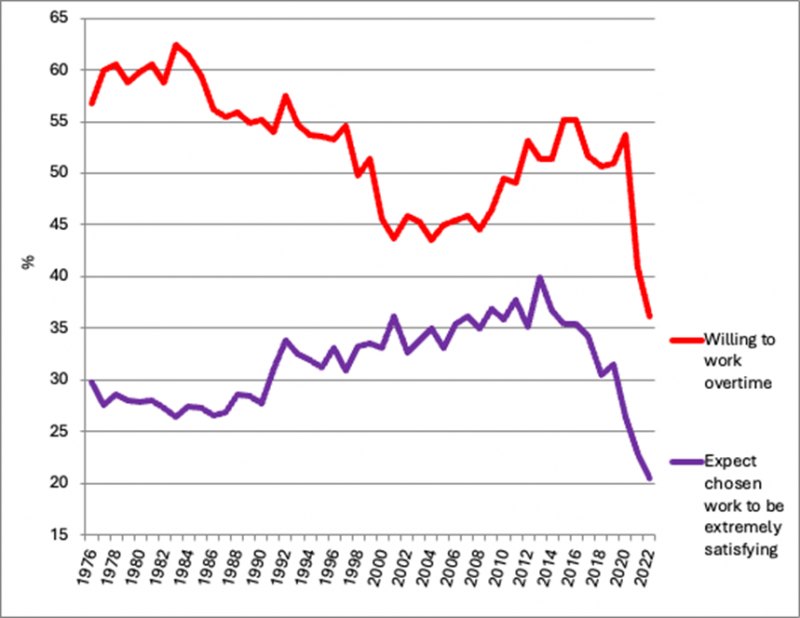No PJ's at Work or Church!
Thursday, July 18, 2024
Dear Pastors
No PJ’s at Work or Church!
Today I want to take a quick look at Generation Z (born 1995-2012)…….the oldest of whom are 29 this year and the youngest are 12.
My primary source is the work of Jean Twenge. Dr Jean Twenge is an American psychologist researching generational differences, including work values, life goals, and social attitudes. She is a professor of psychology, author, consultant, and public speaker She has examined generational differences in work attitudes life goals, developmental speed, sexual behaviour and religious commitment.
In her award winning book ‘Generations’ we get to see what teens and young adults say about themselves, compared to previous generations at the same age. In other words, this data can tell us what is actually different about young people now as opposed to their just being young. Their attitude to the world of work and their approach to it are so different to the boomers and even Gen X.
A picture tells a thousand words. Have a look at this graphic.


- Work-life balance. Gen Z is less likely to say they expect work to be a central part of their lives; instead, they highly value having time for a life outside of work. When surveyed at 18 in 2021-22, Gen Zers born in 2003-05 were the least willing to work overtime of all cohorts dating back to the 1970s (see figure). They are also less likely to say they expect work to be extremely satisfying unlike the generational cohorts before them. At work Gen Z want to get their work done efficiently and if at all possible have flexible hours.
- Don’t assume that Gen Z is entitled. Entitlement is a key facet of narcissism, and narcissistic personality traits are actually lower among Gen Z college students than they were when that group was mostly Millennials. Gen Z is also less confident in themselves and have lower expectations than Millennials did at the same age. Where Millennials were highly optimistic, Gen Z is much more pessimistic. While some Millennials assumed they would be CEO of the company in 10 years, Gen Z has no such illusions. They are more realistic and practical and may need more encouragement.
- One authentic self. Expect informality. In a survey of managers, 47% said recent interviewees had dressed inappropriately, and 27% said they’d used inappropriate language. The idea of one authentic self—“I am the same person at work and at home”—has been building for decades, and really took off during the pandemic when remote work became the norm. There are clear upsides to being more casual and comfortable, but managers (and I would suggest pastors) increasingly need to communicate explicit rules for dress and language. Otherwise, you’re going to have young adults showing up wearing pyjama pants.
- Mental Health. There is a heightened awareness and openness about mental health issues among Gen Z. They are more likely to seek help and support for mental health concerns and advocate for mental health resources. Twice as many Gen Z young adults experience clinical-level depression than Millennials at the same age. When at work Gen Z employees are more likely to ask about insurance cover for mental health treatment and company policies around mental health and wellness. In combination with their emphasis on work-life balance (see No.1 above) they are also more likely to request a “mental health day” to recharge. Companies that hire large numbers of college graduates, such as the accounting firm Ernst & Young, have had success offering employees a allowance to cover wellness items.
- Empathy. Gen Z wants to make a difference and that includes at work and wherever they spend their time including their church community. Gen Z values jobs that are “directly helpful to others” more than previous generations did. They also express more empathy than young adults 15 years ago and give higher marks to jobs that are “worthwhile to society.”
So Pastors and Christian Leaders how will you ‘adapt’ to this generation? If you employ young people from this age group what will be the tenor of your conversations with them? How flexible are you willing to be…..can you be? How can you harness all that is good about this generational cohort?
And when it comes to discipling this age group what topics might you take a deep dive into that are particularly relevant to them? Here a few suggestions. Climate change, racial equality, LGBTQ+ rights, marriage, parenting, consumerism, poverty and that is just for starters.
Blessings
Alan
